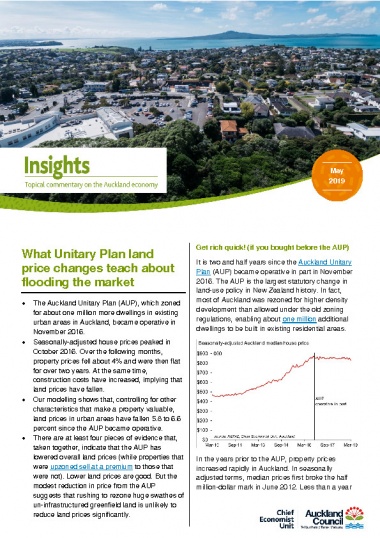What Unitary Plan land price changes teach about flooding the market
Author:
Auckland Council Chief Economist, Shane MartinSource:
Auckland Council Chief EconomistPublication date:
2019Topics:
Economy- The Auckland Unitary Plan (AUP), which zoned for about one million more dwellings in existing urban areas in Auckland, became operative in November 2016.
- Seasonally-adjusted house prices peaked in October 2016. Over the following months, property prices fell about 4% and were then flat for over two years. At the same time, construction costs have increased, implying that land prices have fallen.
- Our modelling shows that, controlling for other characteristics that make a property valuable, land prices in urban areas have fallen 5.8 to 6.6 percent since the AUP became operative.
- There are at least four pieces of evidence that, taken together, indicate that the AUP has lowered overall land prices (while properties that were upzoned sell at a premium to those that were not). Lower land prices are good. But the modest reduction in price from the AUP suggests that rushing to rezone huge swathes of un-infrastructured greenfield land is unlikely to reduce land prices significantly.
Insights. Topical commentary on the Auckland economy
Last updated: 2019-04-11
